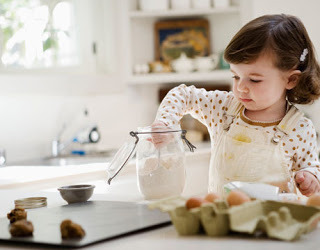How to Make Your First Book Not Totally Suck
 I realize some of you may be past the point of first book. I also realize I've only recently finished my first, and have yet to have editors and agents and other real people look at it, so I may not be the most qualified to give this advice. However. Even if you've finished and published your first book, there's always room for improvement. Also you may take what I say with a grain of salt and do your thing. Anyway. Onward.
I realize some of you may be past the point of first book. I also realize I've only recently finished my first, and have yet to have editors and agents and other real people look at it, so I may not be the most qualified to give this advice. However. Even if you've finished and published your first book, there's always room for improvement. Also you may take what I say with a grain of salt and do your thing. Anyway. Onward.Yesterday at The Kill Zone blog (which is totally and completely fabulous) there was an incredibly wise and infinitely practical post by Joe Moore called The Pancake Rule. The Pancake Rule basically says that a writers first novel typically serves as a test novel but isn't usually edible. Like a first pancake, which usually ends up burnt. He gives a fantastic print-this-out-and-put-it-by-your-desk list of the flaws in first novels that make them turn out this way.
But I've made my first pancake, and I want it to be edible. I want it to be delicious, in fact. I needed that hope and ambition to make it through the hot stuffy kitchen. If we didn't think our projects were worthwhile, we wouldn't spend as much time and effort on them, right?
So is there a way to make a fluffy, golden-brown, delicious and succulent first pancake? Er, novel? Optimism + come on I did all this work=I believe there is.
1. Read. Of course I'm going to say this. It is so incredibly obvious and cannot be stressed enough. If you're going to learn how to play the violin and play it well, you need a proven and talented teacher. The more serious you are, the more you'll study and practice and the better the teachers you'll seek. Writing is NO DIFFERENT. Read Dickens and Shakespeare. Read Austen and the Brontes. Read the Greeks and the postmodernists and poetry. Read modern writers in and out of your genre so you know what style of music is being played today. Not that you need to follow the trends, but it expands your repertoire. I am a firm believer of literary osmosis. The better you read, the better you write. I am the dork who read the unabridged Les Miserables during the bus drives on a highschool exchange in Germany for fun, so this better work.
2. Study. This is similar but different to reading for pleasure. See, merely the fact that we have Joe Moore's list of newbie mistakes helps us avoid making them. Reading blogs has taught me literally everything I know about the publishing industry. There are some really great books on writing out there (as well as some not so great ones), and they help too.
3. Real Life Teachers. This of course means English and Creative Writing teachers in high school and college, but its not just that. A critique group works. Beta readers. Outside perspective can help you figure out your blind spots.
4. Experiment. Try a few short stories before you dive into a novel. Or poetry. These are the kinds of things you can give to your teachers and beta readers. Then take their feedback into account as you start on your first real pancake.
5. Have passion and know how to translate it. Of course you have to care about your story. Everyone can tell if you don't, and they won't either. But this passion has to translate into an emotionally captivating story and characters, not sappy and cliche writing. And really, sometimes the line between them is very fine indeed. This is where the reading and studying and experimenting and teachering come in to play. They're your translators, they make your writing comprehensible and beautiful to the world outside your head. But you're heart has to be there too.
What do you think? Do you agree that its possible for a first novel to be delicious? I mean, of course it is because its happened, but do you think that consciously doing these kinds of things can really increase a first-time novelists chance of success? I sure freaking hope so. Any tips you would add to this list?
Sarah Allen
Published on February 23, 2012 04:30
No comments have been added yet.



